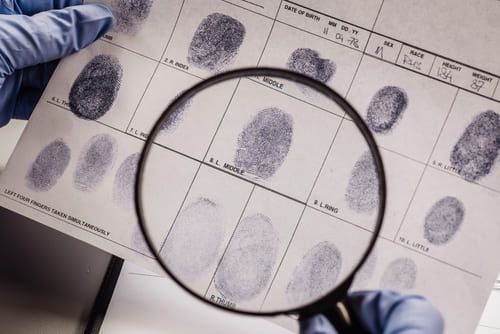Blog

Being involved in any kind of car accident caused by a negligent or reckless driver can result in serious injuries and extensive medical expenses. Dealing with these expenses can be overwhelming, as can negotiating with insurance companies alone. In these cases, a skilled Texas car accident attorney can help you understand the types of compensation you may be eligible to recover and advocate for your rights. Common Types of Car Accident Compensation In Texas, the type of compensation you can receive is split into three main categories . Depending on the nature of your accident and injuries, you may be eligible for all three types of car accident compensation when you bring a claim against the driver responsible. Texas car accident compensation falls into one of these categories below: Economic damages cover tangible costs, such as medical expenses, lost wages, lost future earning potential, and property damage. Non-economic damages cover intangible costs like pain and suffering, emotional or mental trauma, and loss of enjoyment in life. Exemplary or punitive damages are awarded in cases where the driver at fault acted especially negligently, recklessly, or with malice. Your attorney can help review the specifics of the accident you were involved in to determine the types of compensation you might be able to recover with a claim. How Do I File a Claim for Compensation? The most important thing in a claim for compensation after a car accident is being able to prove that the driver at fault was acting in a way that was either reckless or negligent, causing the accident. This can be challenging, especially when insurance companies may also be involved and working to avoid paying out compensation. To file your claim for compensation, you will need to gather the details about your accident, including photos, videos, police reports, and witness statements, and bring them to an experienced car accident attorney. Medical documentation and details on your injuries that resulted from the accident are also essential. Your attorney will then work to build a compensation case, advocating for you to receive the maximum compensation possible. Contact a Katy, TX Car Accident Lawyer Recovering after a car accident can be a long process, and the expenses that you are left with due to your injuries might be difficult to deal with. Pursuing compensation with the assistance of an experienced Fort Bend County, TX car accident attorney is essential to receiving the compensation you need and deserve. At The Hatton Law Firm PLLC, Attorney Sherman Hatton is a former judge with the legal skills and experience necessary to help you pursue your car accident claim. Call 713-840-6344 for a free consultation.

In catastrophic injury cases in Texas, determining lost future income is a crucial aspect of calculating fair compensation for the victim. This process involves a complex analysis of various factors to ensure that the injured party receives adequate financial support for the impact of their injury on their ability to earn a living in the future. If you or a loved one suffered a catastrophic personal injury in Texas, a qualified lawyer may be able to assist you. As a former Judge, Attorney Hatton at The Hatton Law Firm PLLC has a comprehensive understanding of the law in Texas, especially when it comes to personal injury cases. With such a well-qualified attorney on your side, you can feel more confident pursuing the compensation you believe you are owed related to your catastrophic injury. Assessing the Impact of the Injury on Future Earning Ability When determining lost future income in Texas catastrophic injury cases, one of the key factors considered is the impact of the injury on the victim’s future earning ability. This involves assessing the extent to which the injury has affected the person’s ability to work and earn a living in the long term. Factors such as the nature and severity of the injury, the individual’s occupation, and their earning history are taken into account to calculate the potential loss of future income. Projection of Future Earnings Another crucial aspect of determining lost future income in catastrophic injury cases is projecting the victim’s future earnings. This involves analyzing various factors such as the injured person’s age, life expectancy, occupation, education, and earning potential to estimate the amount of income they would have earned if not for the injury. Consideration of Inflation and Cost of Living When calculating lost future income in catastrophic injury cases, inflation and cost-of-living adjustments must be considered. This ensures that the compensation awarded to the victim takes into account changing economic conditions over time. By factoring in inflation and cost-of-living adjustments, the calculated amount of lost future income is adjusted to reflect the true value of the victim’s future earning capacity. Contact Our Katy, TX Catastrophic Injury Lawyer If you or a loved one has suffered a catastrophic injury that will affect your future earning ability, a trained attorney is ready to ensure you receive maximum compensation for that and any other damages you have suffered. Contact the skilled Fort Bend County, TX catastrophic injury attorney with The Hatton Law Firm PLLC for legal assistance. Call 713-840-6344 for a free consultation.

Facing criminal charges, even for a misdemeanor offense, can be a stressful and overwhelming experience. While a misdemeanor features distinct differences compared to a felony , those facing misdemeanor charges may still wonder what the consequences could be if they are convicted. Discuss your options with a qualified attorney to ensure you give yourself the best opportunity to beat the charges and ultimately move on with your life. Understanding Misdemeanors in Texas In Texas , misdemeanors are classified into three categories: Class A, Class B, and Class C. Class C is the least serious offense, carrying a maximum penalty of a fine of up to $500. Class B misdemeanors can result in a fine of up to $2,000 and up to 180 days in jail. Class A misdemeanors are the most serious kind of misdemeanor offenses, punishable by a fine of up to $4,000 and up to one year in jail. Understanding the Factors that Influence Prison Time Whether you will go to prison if convicted of a misdemeanor in Texas depends on various factors, including the specific circumstances of your case, your criminal history, and the discretion of the judge. In many cases, first-time offenders convicted of misdemeanor offenses only receive probation, community service, fines, or other alternative sentencing options instead of jail time. Alternatives to Prison for Misdemeanor Convictions Those charged with misdemeanors will be glad to know that Texas offers various alternatives to incarceration for certain people convicted of this level of offense. These alternatives may include probation, deferred adjudication, community service, counseling programs, or substance abuse treatment. By working with experienced criminal defense professionals, you may be able to explore these alternative sentencing options and avoid serving time in prison. Hire a Lawyer When Facing Misdemeanor Charges in Texas Not only will hiring an attorney give you a better chance at avoiding jail time, but your lawyer will also ensure you understand your legal rights, navigate the criminal justice system as efficiently as possible, and work toward the best possible outcome for your case. With their knowledge and experience, your attorney can represent you, negotiate with prosecutors, and present a strong defense in court. Contact Our Fort Bend County, TX Misdemeanor Defense Attorney While the possibility of serving time in prison for a misdemeanor conviction in Texas exists, alternative sentencing options are available. Contact our respected Katy, TX misdemeanor defense lawyer with The Hatton Law Firm PLLC. Call 713-840-6344 for a free consultation.

Texas has many annual truck accidents , some of which end in serious injury or death. Though there is some overlap, injuries sustained in truck wrecks tend to be more severe than those suffered in car-to-car accidents. Injuries such as broken bones, lacerations, and brain and spinal trauma, are all too common. Anyone suffering injuries due to the negligence of another driver should contact a lawyer for legal counsel and the next steps. Here are some of the most serious injuries resulting from truck accidents in Texas. Amputation and Disfigurement A severe collision can result in the loss of arms, legs, or hands. A large piece of metal may entangle itself around or through a limb, causing the need for an immediate amputation to save a driver’s, or passenger’s, life. These injuries could have profound long-term consequences of both a physical and psychological nature. Burns and Lacerations Especially in cases where flammable cargo is involved, victims of crashes are likely to suffer burn injuries. These trucks are highly susceptible to explosions and fires, resulting in possible third or even fourth-degree burns. Head and Brain Injuries Truck wrecks can cause damage that may not be apparent at the moment. Traumatic brain injuries (TBI) in particular can be difficult to detect, as the injured person may not even know that they have one. Concussions, one of the more minor types of TBI, are very common in accidents involving trucks. A brain bleed, which is much more serious, is difficult to diagnose at the scene of an accident and can be life-threatening. Spinal Cord Injuries Paralysis and ongoing pain and disability are all associated with spinal cord injuries. Paraplegia and quadriplegia are both possibilities in the event the spine or vertebrae are injured. A distracted or drunk truck driver oblivious to what is in front of them could easily cause a lifetime of physical, mental, and emotional anguish in an instant. Contact a Fort Bend County, TX Personal Injury Attorney Injuries of all kinds are far too common in Texas truck accidents. If you or someone you know has suffered damages due to another driver’s negligence, reach out to an experienced Katy, TX truck wreck lawyer as soon as possible. The Hatton Law Firm PLLC will investigate your case, gathering necessary evidence to pursue full compensation for your claim. Contact the office for a free consultation at 713-840-6344 .

Death comes to everyone. It is a natural progression of life. However, when it comes to loved ones through the negligence of another, death deserves compensation. A family who loses a loved one because of someone else’s reckless actions or behavior has the right to file a wrongful death claim for damages incurred by that person’s death. An attorney can discuss the situation with you and determine whether or not you have a case. What is a Statute of Limitations? A statute of limitations is a time limit placed on a person to pursue a civil or criminal action. Concerning a wrongful death claim, the plaintiff has a certain amount of time to file a lawsuit against the defendant following a wrongful death taking place. The time allotted is determined by state law. How Long Can I Wait To File a Wrongful Death Claim in Texas? The Texas statute of limitations on a wrongful death claim is two years. This means that a wrongful death claim must be brought within two years of when the death occurred. The statute describes it as “the day the cause of action accrues.” So if a loved one was in a car accident in April but dies in June, the timer for filing a claim starts in June. There are very few exceptions to this rule that will allow an extension on the statute of limitations. The exceptions to the statute of limitations on wrongful death claims are: The plaintiff is a minor (under the age of 18) Negligence was discovered later Unable to file a claim due to mental or physical incapacity In the case of a minor plaintiff, the statute of limitations begins on their 18th birthday. As far as not knowing the death was due to another’s negligence, the statute of limitations begins when negligence is discovered. For those incapable of filing a claim due to mental or physical incapacity, once the plaintiff is competent again, the countdown timer will begin. What Do I Need To File a Wrongful Death Claim? In Texas, only the deceased person’s surviving spouse, children, and parents can file a wrongful death claim. However, if none of the eligible family members bring a wrongful death lawsuit within 90 days of the death date, then a personal representative or executor of the deceased individual’s estate can file on their behalf. The plaintiff will be required to prove negligence on the part of the defendant. This means proving that the defendant owed a duty of care to the deceased person, and breached that duty, which ultimately resulted in their death. The plaintiff will also be required to show proof of damages incurred following the death of their loved one. Contact a Fort Bend County, TX Personal Injury Attorney We at The Hatton Law Firm PLLC believe that families deserve compensation for the death of a loved one due to a negligent party. It is not an option but a right to receive what is owed in the wake of such a tragic event. Our caring and experienced Katy, TX wrongful death lawyers are committed to getting you everything you deserve. Contact our office at 713-840-6344 for a free consultation where we can discuss your case.

Understanding the impacts that a criminal record has on your life may be able to help you face whatever criminal charges come your way in the future. Even if you are acquitted of a crime and all charges are dropped, the arrest can remain on your permanent record. To ensure minimal impact on your current and future life, you must do everything possible to minimize the exposure. When charged, a skilled criminal defense attorney can help to get the charges reduced or dropped while fighting to preserve your legal rights. Employment Disqualification Even without a conviction, having a charge appear on your permanent record can disqualify you from certain places of employment. Even when finally landing a job, having a stain on your permanent record can hamper your earning potential. If you are already gainfully employed, a charge or conviction can easily make your job disappear. When charged or convicted while employed under a professional licensing board, such as in nursing, they can have your license revoked. Goodbye Driver’s License Speaking of licenses, all it takes is a criminal charge to see your driver’s license suspended or revoked. This is especially true of DWI charges . In addition to losing your license, the court may require you to undergo substance abuse treatment or an alcohol and drug education program before you can get your license back. The Kids Are Not Alright Criminal records can be used against you in divorce proceedings involving children. A Texas court can impose restrictions and limitations on your time with your children. This is particularly true when charged with any sort of family violence or domestic abuse . Even a misdemeanor charge could see any dreams of adopting a child go up in smoke. Your Right To Bear Arms A conviction of either a misdemeanor or felony could see you lose your right to bear arms. The Texas Department of Public Safety will no longer issue you a license to carry a firearm in these cases, as a convicted felon can not lawfully possess a firearm in Texas. This means gun owners can have their guns taken away. Education Restriction Chances for higher learning can be limited if convicted of no more than a misdemeanor. Of course, the school’s policies are what the restrictions are dependent upon in these cases. However, getting a loan can also be hindered by a criminal record. With a sexual or drug-related offense on record, financial aid will be nearly impossible to gain. Contact a Fort Bend County, TX Criminal Defense Attorney Some charges may be expunged or sealed from your record, which could alleviate some of the complications that stem from having a criminal record in the first place. Uncovering what can and cannot be expunged or sealed is done better by employing a skilled Katy, TX criminal defense lawyer like those at The Hatton Law Firm PLLC. For a free consultation to see what can be done about your criminal record, contact the firm at 713-840-6344 .

Traumatic brain injuries (TBI) are a possibility in any vehicle collision. However, they are especially prevalent in motorcycle accidents due to the lack of protection in comparison to car and truck drivers. Mild conditions such as concussions are relatively common in motorcyclists who strike their heads when hitting the ground after a collision. Disabilities and death are also common occurrences sustained by motorcyclists, even when a helmet is worn. When a motorcycle accident occurs due to another driver’s negligence, you will likely look to be compensated for any damages. A talented and experienced attorney can come in clutch by gathering evidence to prove negligence on your behalf. The Levels of Traumatic Brain Injuries (TBI) Traumatic brain injuries following a motorcycle accident come in three levels: Mild Moderate Severe Each degree of TBI comes with its own symptoms. Someone suffering from a mild TBI may: Complain of a headache Experience blurred vision Feel nauseous or vomit Feel tired or sleepy Have slurred speech Have a sensitivity to light Feel off-balance or dizzy Become disoriented or confused Have issues concentrating Show signs of anxiety or depression Someone suffering from a moderate to severe TBI may: Lose consciousness for many hours Have a persistent headache that becomes worse over time Have dilated pupils Feel numb in the fingers or toes Display unusual or combative behavior Enter into a coma Most Common TBI Following a Motorcycle Wreck Motorcyclists can suffer a laundry list of injuries following an accident. However, certain injuries are more common when involved in a motorcycle wreck. The most common TBI a motorcyclist may experience include: Mild headaches and concussions Contusions or brain bleeds Coup and contrecoup injuries Deadly diffuse axonal injuries The last entry is almost always fatal as it occurs when the brain bounces inside the skull without clear direction. This causes widespread damage and potential death to the victim. Coup and contrecoup injuries are more apparent in the direction of where the brain moves after a collision . When the brain flies forward after a blow to the front portion of your skull, that is considered a coup injury. When the brain passes in the opposite direction of where you suffered the hit to your head, that is regarded as a contrecoup injury. All of these injuries can overlap, such as a brain bleed accompanying a coup injury. Almost any brain injury suffered from a motorcycle accident can be considered a TBI. The only difference lies in how severe those injuries are. The amount of brain damage sustained will determine the compensation received in a lawsuit. Contact a Fort Bend County, TX Personal Injury Attorney Motorcycle TBIs are some of the most dangerous and life-threatening injuries one can receive out on the road. If you have suffered or know someone who has suffered catastrophic injuries following a motorcycle accident, it is important to seek legal counsel as soon as possible. An experienced Katy, TX motorcycle accident lawyer rom The Hatton Law Firm PLLC can answer any questions regarding the accident and potential compensation. We will fight tooth and nail to obtain the damage compensation you deserve. Reach us today for a free consultation at 713-840-6344.

When one driver is driving under the influence (DUI) of alcohol or drugs, it can be used by the other driver as evidence of negligence in court. Suppose the non-DUI driver can prove the other driver’s negligence is what caused the accident. In that case, that driver can recover damages to their vehicle, medical bills, lost employment wages, and more. A highly skilled personal injury attorney can cover all this with you and help you pursue compensation as needed. Determining the Drunkenness of the Other Driver Texas law states that a driver driving with a blood alcohol content (BAC) of 0.08 percent or higher is considered a DUI. This means that no other evidence is required in court to confirm the driver was driving while intoxicated (DWI). When an officer arrives on the scene, if they suspect a driver was DU I , they can choose to perform a field sobriety test or require the driver to come to the police station for a sobriety test. As the non-DUI driver in the accident, you will need to obtain the police report with the results. These results can be used against the other driver or at-fault driver in a lawsuit or civil claim. Filing a Lawsuit or Claim Pursuing legal action against the driver and their insurance company will be stronger with a lawyer. An attorney can gather evidence and other documents to establish your claim to prove in court that you need to recoup your out-of-pocket expenses and other financial losses. Ensure you document all medical care received and the expenses required for that medical care. Things such as: Emergency room costs Ambulance costs Hospital stays Doctors’ visits Surgeries Medications or medical devices required Medical bills Medical reports Medical diagnoses The receipts Again, you will want to obtain the police report of the accident and the results of the chemical testing that proved the driver had been driving under the influence. You can go a step further and get eyewitness reports and physical evidence, such as photos or videos of the accident. All evidence you acquire will only further validate your claim. Auto repairs, lost wages, and non-economic damages (pain and anguish, emotional complications) should also be documented in your claim. The insurance adjuster will likely need all of the documentation to determine your claim’s validity. Contact a Fort Bend County, TX Personal Injury Attorney When you need legal representation in a personal injury claim or lawsuit, look no further than The Hatton Law Firm PLLC. We can provide an experienced Katy, TX DWI accident lawyer DWI defense lawyer if you are the “other driver.” Contact the firm at 713-840-6344 for a free consultation to discuss your situation.

More often than not, the vehicle's driver takes the blame when the vehicle collides with a pedestrian. However, this is not always the case. A pedestrian can be partially or wholly to blame for a collision , but the driver must prove liability or negligence. To ensure your rights are covered and you receive your due compensation, you must contact a personal injury l awyer to handle your case. Why Are Drivers Usually At Fault? Drivers are legally obligated to exercise caution while on the road and be on the lookout for obstacles and pedestrians wherever and whenever they may be present. A pedestrian is anyone walking, running, sitting, jumping, or performing any activity on or near a roadway. Individuals in wheelchairs or parents pushing babies in strollers are also considered pedestrians. So even if a pedestrian does something unexpected that causes you, the driver, to have an accident, chances are you will be held liable. It is incredibly rare for a driver to be entirely without blame in these situations, but not impossible. When is a Driver Not At Fault For a Pedestrian Accident? There are specific scenarios where the driver can avoid fault or only be considered partially at fault for an accident involving a pedestrian. Some of these situations include: The government is responsible for road and traffic maintenance, including traffic lights, crosswalk signals, and fixing road issues . An injury or collision caused by a faulty traffic light or attempting to avoid serious road damage can potentially see the government holding the blame. Employers who use commercial trucks to make deliveries cannot always control their drivers. An accident that occurs while a driver is on duty could see the employer being held liable for the damages. Such as in the case of an Amazon Prime delivery truck backing into someone walking their dog. So long as the truck itself is employer-labeled and the driver was on duty for the said employer, the liability may fall into the employer's lap. Pedestrians choosing to walk on the road during oncoming traffic far from a crosswalk could be held partially liable for any collision or damages that occur. It may be easier for a prosecutor to claim negligence on the part of the pedestrian in this way. However, as the driver, you are still obligated to be on the lookout for these occurrences. Therefore, you may still be partially liable for the damages or injuries sustained yourself. Contact a Fort Bend County, TX Personal Injury Lawyer Facing charges of negligence or trying to receive compensation for injuries sustained in an accident that was not your fault? You should immediately consult a K aty, TX personal injury attorney . At The Hatton Law Firm PLLC, we will fight tooth and nail for every bit of compensation you deserve. Contact our office at 713-840-6344 for a free consultation so we can discuss how to get your fair share.

Drunk driving is reported to be responsible for approximately one-third of all traffic fatalities , according to the National Highway Traffic Safety Administration. When a loved one passes away due to the negligence of a drunk driver , it can have devastating repercussions. A wrongful death claim could provide financial compensation for your loss. Contact a Texas wrongful death claims attorney to help get you started. What is a Wrongful Death? A wrongful death occurs when an individual causes the death of another due to neglect, carelessness, or a wrongful act. A loved one taken in this way may allow you to file a claim and recover damages for the loss. Who Can File a Wrongful Death Claim? Texas only legally allows specific individuals to file a wrongful death claim in the event a loved one is killed. The people who can file such a claim include: The spouse of the deceased The deceased’s children, who have legally adopted children The deceased’s parents, which provides for adoptive parents Siblings and grandparents cannot file for a wrong death action in the state of Texas. When an eligible family member does not file a wrongful death lawsuit within three months of when the death occurred, the state can allow a personal representative to file a lawsuit instead. However, an eligible family member can choose to prohibit a personal representative from doing so. What is Required to File a Wrongful Death Claim? Proof of negligence is needed to win a wrongful death case. You must be able to show in court that: The defendant had a duty of care for the reasonable safety of your loved one They failed in this duty The failure led to the accident which caused the death of your loved one You suffered damages on behalf of your loved one due to the death Evidence that can be used to prove these claims includes: Medical cost receipts Funeral expense receipts Medical reports Police reports Income statements What Damages Can Be Claimed in a Wrongful Death Action? You have the opportunity to recover compensation for expenses and losses incurred by your family because of the death of your loved one. Compensation can be received for any of the below damages: The pain and suffering you and your family received due to the death The income lost because of your loved one’s death Possible loss of inheritance Medical, funeral, and burial costs Loss of a parent or companion Punitive damage eligibility is possible for your family in extreme circumstances. A judge can also award them to penalize the other party for gross negligence . These particular situations are most common in wrongful death claims involving driving while intoxicated (DWI) and homicide cases. Contact a Fort Bend County, TX Personal Injury Lawyer Suffering the loss of a loved one is never an easy pill to swallow. The pain of that loss can linger on for many years to come. Though it cannot cover the true cost of your pain, employing the help of a Katy, TX wrongful death claims attorney can help fight for every bit of compensation your family is owed. The Hatton Law Firm PLLC can provide a compassionate ear to your claims and push for every penny of compensation possible. Contact our office at 713-840-6344 for a free consultation.


